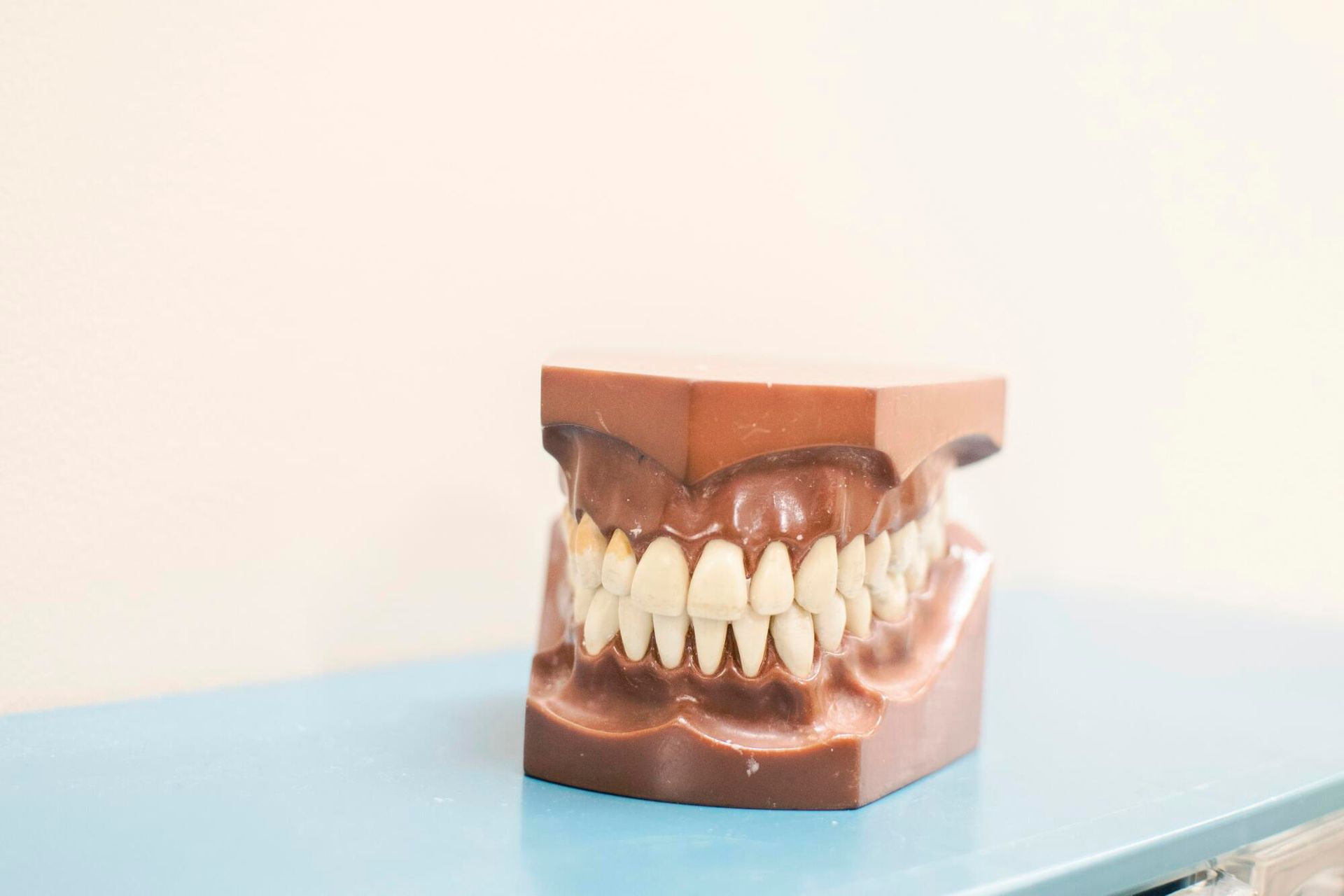The Office Is Not In Network With Medicaid, CareSource, or any State Insurances.
The Office Is Not In Network With Medicaid, CareSource, or any State Insurances.
We Are Accepting New Patients
Serving patients in the Macedonia, OH area.
The Impact of Missing Teeth on Oral Health and How Dentures Can Help
According to the most recent data published on the National Institute of Health (NIH) website, as of 2016, 2.2% of adults between 20 and 64 years old no longer have any teeth. Many others are missing some of their teeth, with adults within this age range having an average of 25.5 remaining teeth.
If you've lost one or more of your pearly whites, too, now is the best time to learn how to replace missing teeth. With modern dental technology, more tooth replacement options have become available, including better, more durable, and natural-looking dentures.
To that end, the Q & A Dental Care team in Macedonia, OH, crafted this guide to discuss the impact of missing teeth on oral health and well-being. We've also shared how dentures can help address these problems, so please read on.
The Negative Impact of Missing Teeth on Oral Health
Missing teeth can ruin an otherwise beautiful smile, resulting in decreased self-confidence. However, its effects go beyond aesthetics; it can result in many other oral health problems, such as:
- Unwanted teeth movement
- Reduced biting and chewing power
- Impaired speech
- Jawbone deterioration
- Changes to the facial structure
Let's explore how missing teeth can cause these consequences and what they mean for you.
Unwanted Teeth Movement
Losing a tooth creates a space that allows the rest of the teeth to shift, whether the loss is due to an accident or a necessary dental extraction. You may not notice it immediately, but the longer the gap exists, the more your remaining teeth will move.
Such movement can cause the teeth to become misaligned. When they become severely misaligned, they can cause more chewing, speaking, and even breathing problems, according to the National Library of Medicine (NLM). NLM further points out that misalignment can raise the risk of tooth decay and gum disease.
Reduced Biting and Chewing Power
Losing a tooth in the front or back can weaken your mouth's biting and chewing abilities. When this happens, you may avoid foods otherwise beneficial to your health. For example, you may no longer want or have the power to eat crunchy fruits and vegetables like carrots, celery, apples, and pears.
Unfortunately, reducing fruit and vegetable intake can result in poor nutrition. According to the U.S. Department of Agriculture (USDA), this problem is a leading cause of illness among Americans. It raises the risk of chronic conditions like diabetes, obesity, and heart disease.
Impaired Speech
The tongue and teeth work together to form sounds when you speak. So, if you lose even just one of your pearly whites, your speech can become impaired. You may find it difficult to pronounce certain sounds, like "th" and "s," or words may become distorted.
Jawbone Deterioration
Every action we make with our teeth, particularly biting and chewing, stimulates the jawbone. When this stimulation disappears due to tooth loss, the jawbone can deteriorate. The more missing teeth, the faster the deterioration.
Jawbone deterioration can cause many other problems, such as:
- Pain when biting and chewing
- Loosening and further shifting of the remaining teeth
- Alterations in one's bite
- Changes to the facial structure, such as an inward sinking of the lips and wrinkles around the mouth
In some people, jawbone problems may also cause pain and even headaches.
Benefits of Dentures: How They Help With Missing Teeth
Dentures are the most sought-after tooth replacement option; according to the American College of Prosthodontists, about 90% of people without any remaining natural teeth use them. A chief reason behind their popularity is that they're the most affordable solution to missing teeth.
So, how do dentures help address the problems caused by missing teeth?
Support Remaining Teeth
Your remaining teeth can move when you lose one (or more) because they lose the support of the now-missing adjacent teeth. So, by filling the gap left by the missing teeth, high-quality dentures can prevent the rest of the teeth from shifting. For the same reason, you can worry less about the consequences of severe misalignment.
Restore Chewing and Speech
If your dentures fit snugly without making you uncomfortable, they should let you eat and speak like you used to. Don't worry, though, as your highly experienced dentist in Macedonia, OH, will ensure your dentures provide a perfect fit.
Implant-Supported Dentures: Missing Teeth Solutions for Jawbone Health
One of the primary drawbacks of traditional dentures is that because they're only superficial, they don't stimulate the jawbone. The good news is that removable dentures are no longer your only option. Your dentist in Macedonia can give you a complete set of implant-supported dentures or bridges.
Implant-supported dentures and bridges consist of three primary parts:
- The implants, acting as replacement tooth roots
- The dentures or bridges, the artificial teeth
- The abutments that connect the implants with the artificial teeth
For dental implants to work, dentists must surgically place them inside the jawbone. Because the process is surgical, it requires specialty knowledge and precision. For this reason, please ensure you choose only a dentist specializing in implant dentistry.
Once placed, the implants will fuse or "osseointegrate" with the jawbone. Once integrated, the implants can mimic the jawbone-stimulating function of natural tooth roots. So, with implant-supported dentures, you can enjoy natural-looking replacement teeth while preserving your jawbone.
How to Replace Missing Teeth With Dentures
Most people with missing teeth can get dentures, but not everyone is a good candidate for implant-supported dentures. For example, people who wish to get implants must have enough of a healthy jawbone.
So, the first step to getting dentures is to seek the advice of a highly experienced dentist who's also an implant specialist. They can help determine which type of dentures is best for your case.
Boost Oral Health With High-Quality Dentures
Now that you know how to replace missing teeth with dentures, the next step is to decide whether to get traditional dentures or those supported by implants.
Our highly experienced dentist, Dr. Montgomery, and compassionate staff at Q & A Dental Care in Macedonia, OH, can help. In addition to general dentistry, Dr. Montgomery specializes in implant dentistry and oral surgery. Using his skills, knowledge, and experience, he can help you decide which tooth replacement option is best for you.
If you're ready to regain your complete smile and enjoy its many benefits, please contact us today!
Website designed and maintained by Xpress, INC
All Rights Reserved | Q & A Dental Care



